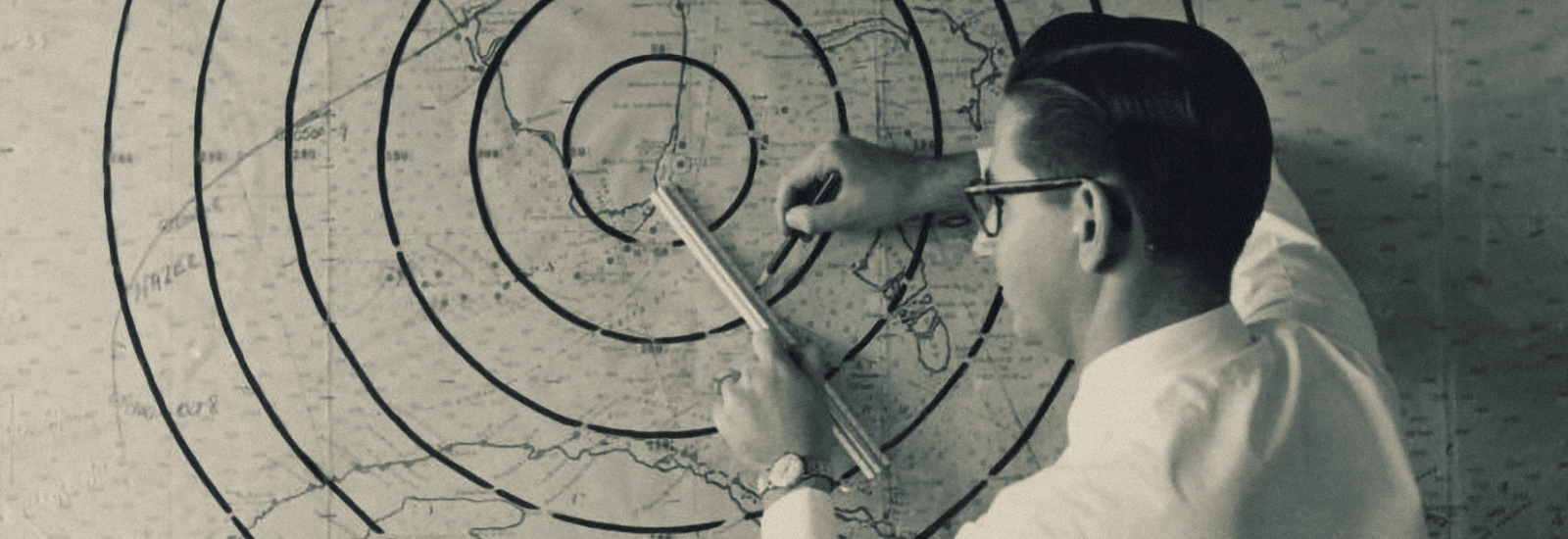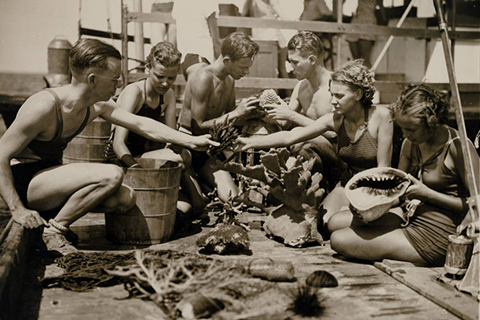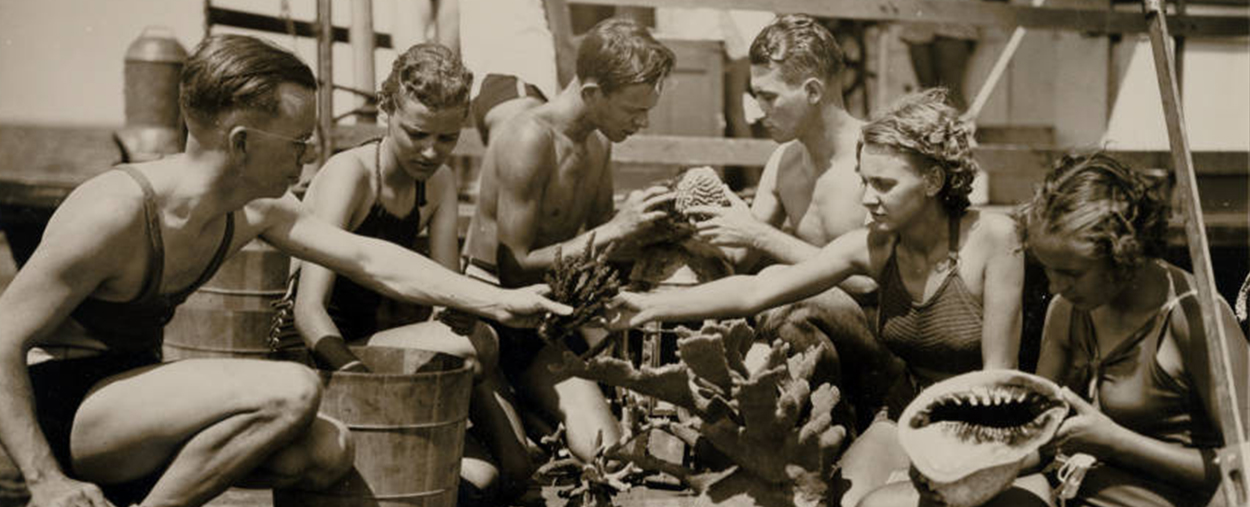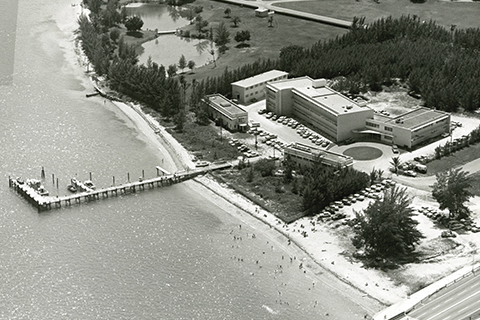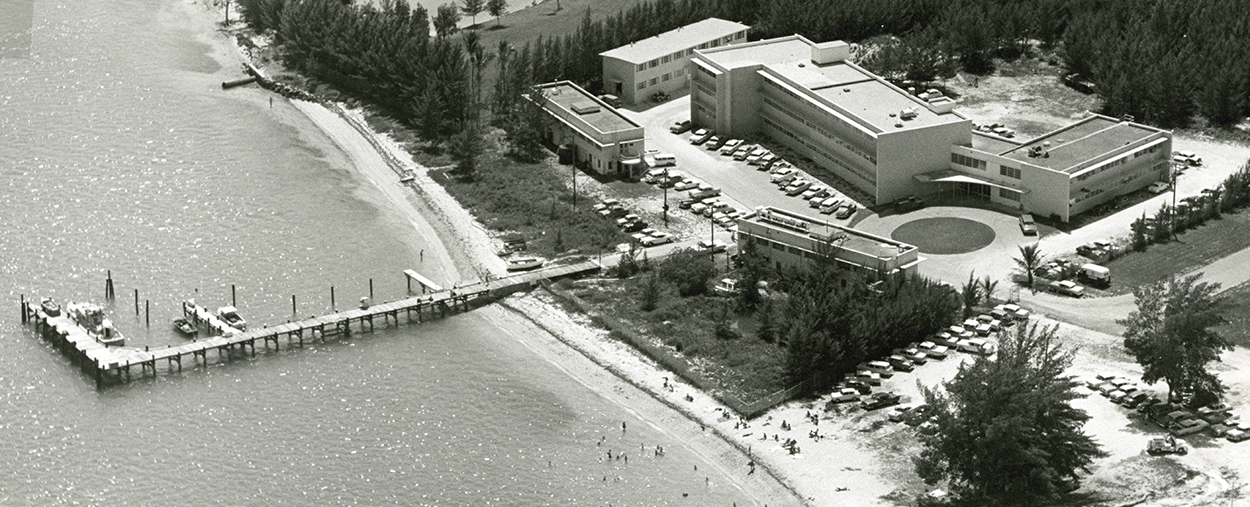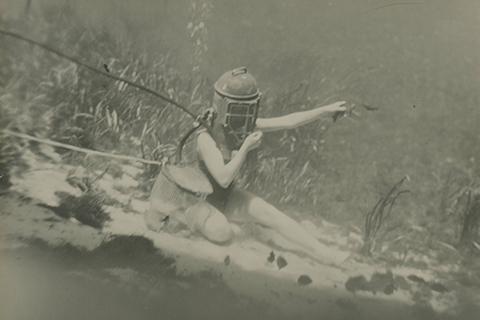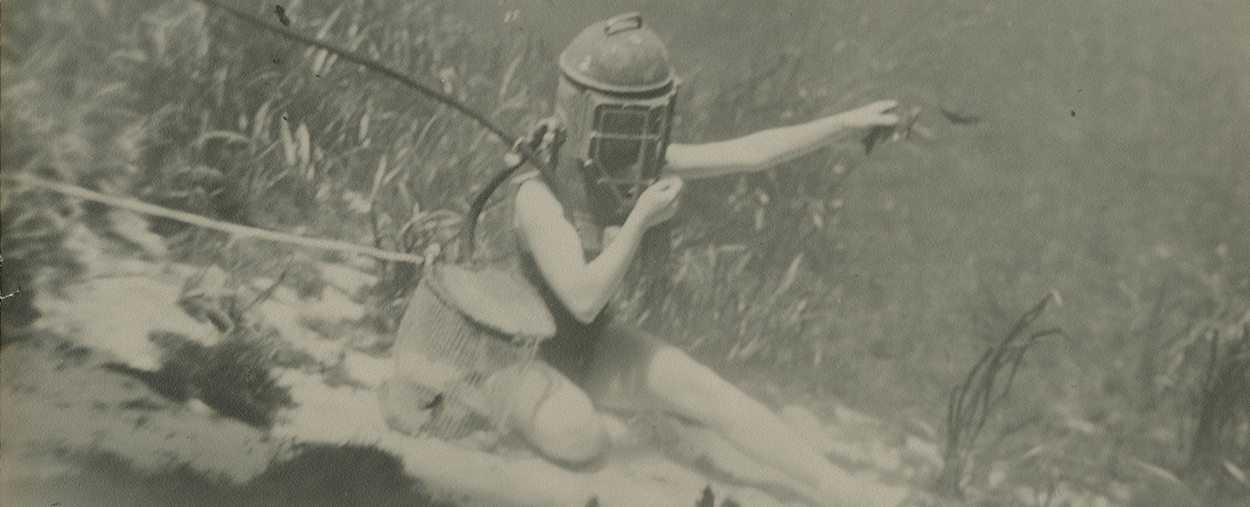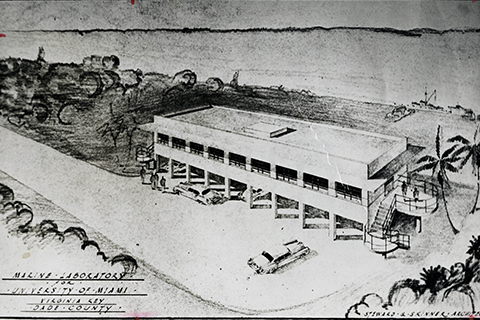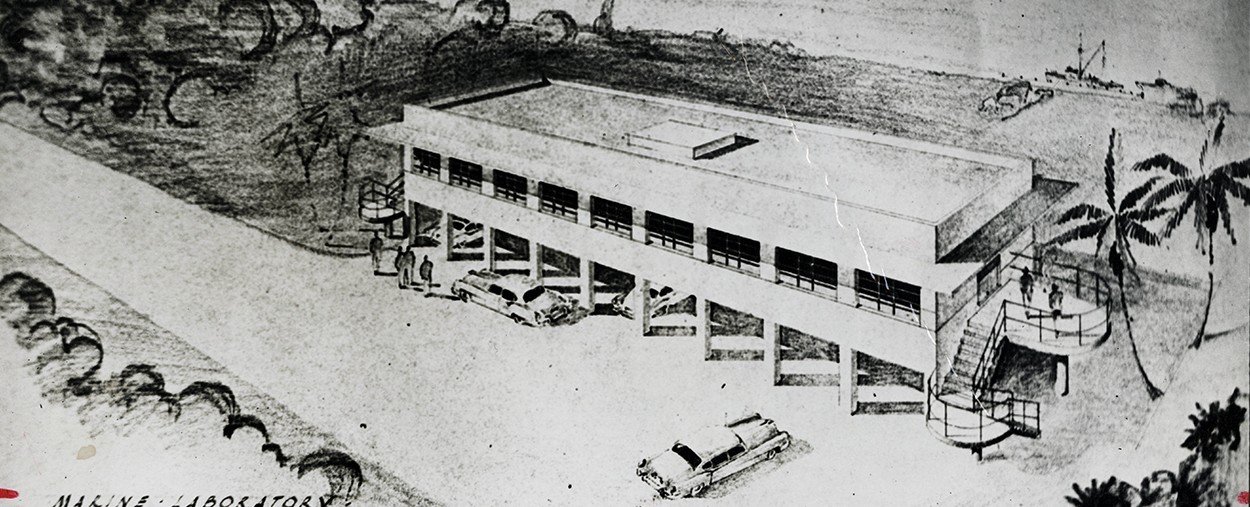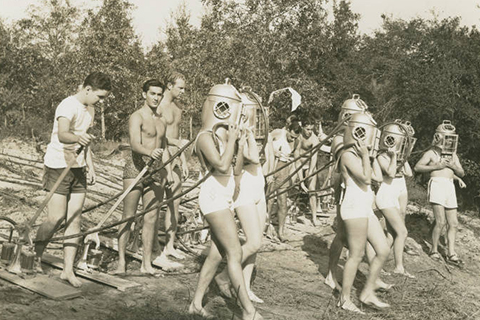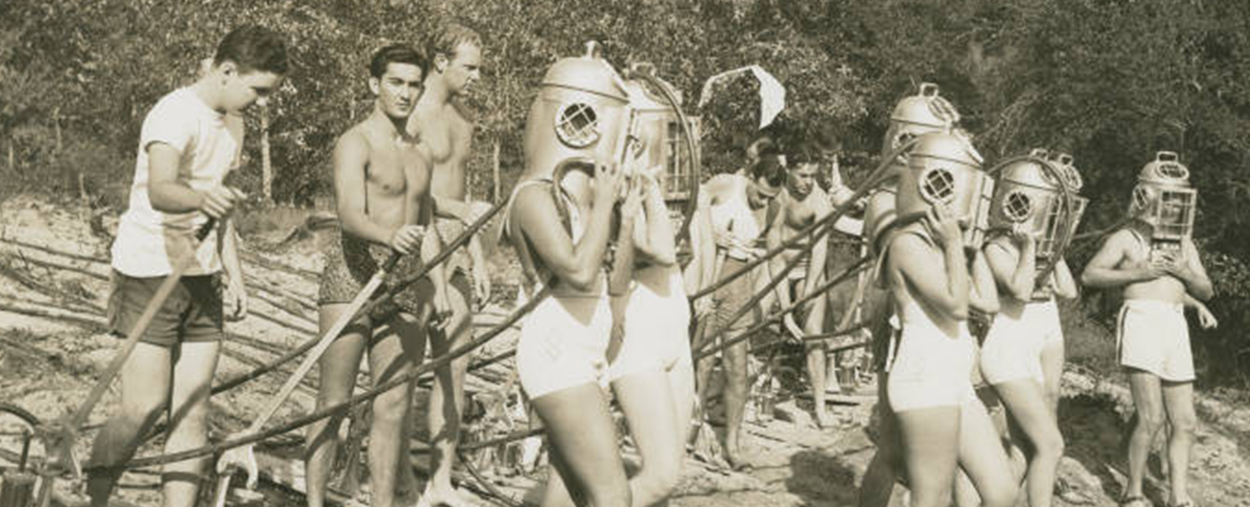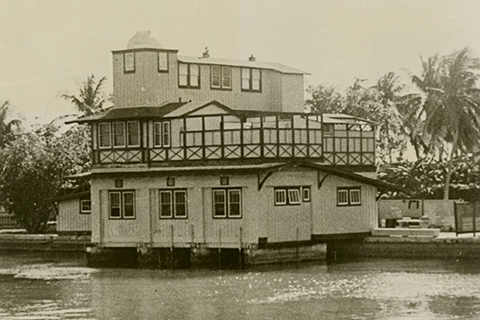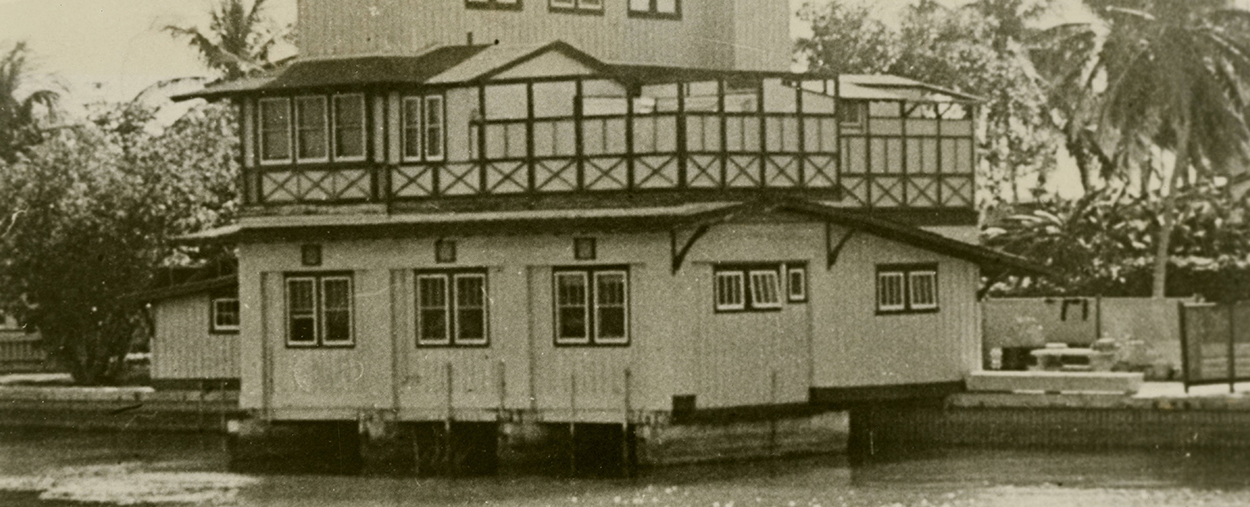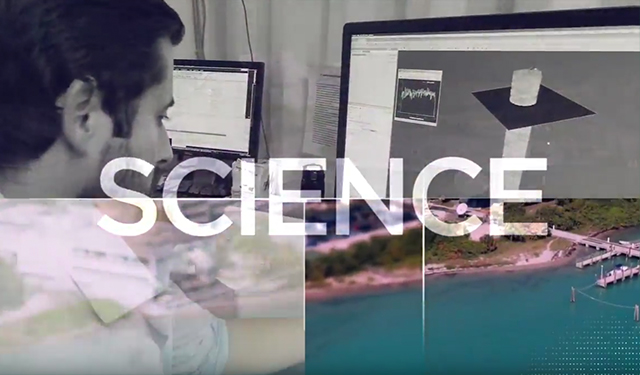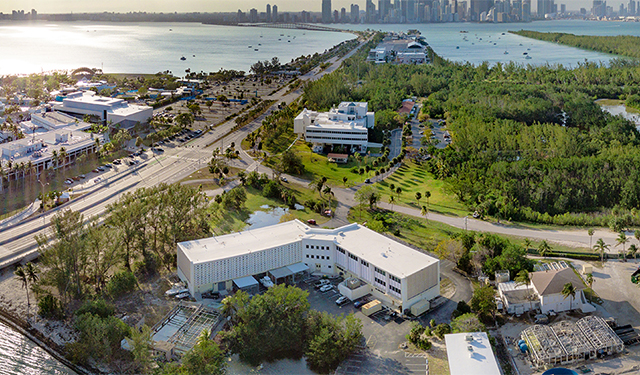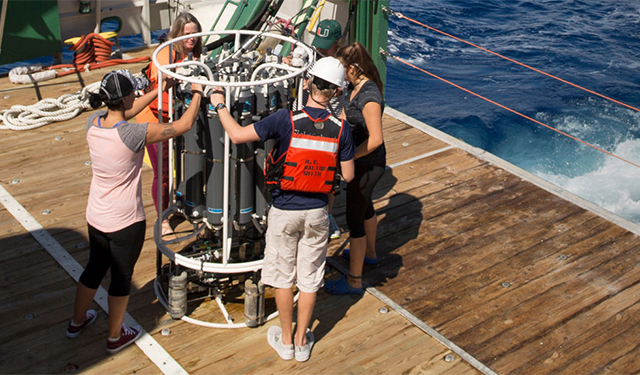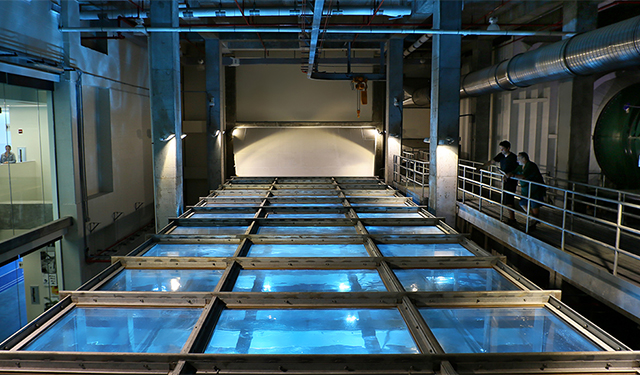by Michael R. Malone
UM News
05-21-2018
Peering from the window of his boathouse barge on Miami Beach in 1943, F. G. Walton Smith would have enjoyed a clear, long-range view of the shimmering tropical waters. Yet despite his great vision, the British-born biologist could never have imagined that his humble university laboratory would one day—75 years later—evolve into the renowned earth system research and educational hub that is today known as the University of Miami Rosenstiel School of Marine and Atmospheric Science.
Several hundred faculty, researchers, staff, and distinguished guests gathered in the school’s SALT Waterfront Restaurant May 18 to commemorate the amazing 75-year voyage of the school, whose three-fold objective of instruction, basic research, and applied marine research remain the same as for Smith’s waterfront laboratory.
University President Julio Frenk referred to the Rosenstiel School as “the jewel in our crown of knowledge” and, with the nearly panoramic view of Biscayne Bay and streaks of pink and blue filling the evening sky behind him, launched the celebration at the momentous occasion.
“Your steadfast pursuit of greater knowledge has been essential to improved hurricane forecasts, expanded knowledge of ocean and atmospheric processes, natural blizzards and catastrophes, weather and climate change, sea-level rise, marine conservation, and much more—with the end reward of providing the scientific basis for influencing sound policy,” the president said. “And all of this while developing and mentoring the next generation of scientists who will continue the pursuit for greater scientific knowledge into the next century.”
Frenk recognized the “vision and passion” of the school’s predecessors in special reference to Smith, “an ambitious 31-year-old British scientist” and his wife, May, who moved to Miami from the Bahamas in the fall of 1940 at the invite of Bowman F. Ashe, then University president.
Dean Roni Avissar coordinated the series of presentations and awards while honoring “the work of so many over decades who have contributed to the amazing evolution of the school.”
Lady Blanka Rosenstiel—school benefactor together with her husband, Lewis—shared memories of when Lewis and Smith became good friends while sailing in the Caribbean. “They were both yachtsmen who loved the sea,” she said, adding that “both were committed to education in this field.” Lady Rosenstiel also applauded that the “campus has grown beautifully” and that the expansion honored her husband’s legacy.
Born in the port city of Bristol, England, Frederick George Walton Smith earned his Ph.D. in biology from the University of London and did post-doctoral work at Princeton and Stanford Universities. He was a young biologist in the Bahamas planting thousands of sponge cuttings—wiped out by disease a few years later—when he and his wife accepted the invite to join the University. Smith acquired a Navy engineless barge as part of his “hush hush” experimental work in cooperation with the U.S. Navy’s Oceanographic Institute on the waters around Florida. The boathouse barge, which he docked at a Miami Beach marina, served as a marine laboratory—the forerunner of Rosenstiel School—that Smith operated together with a secretary, two student assistants, and a small motorboat.



